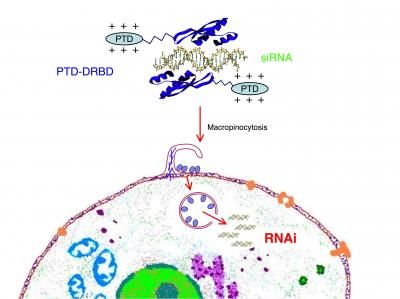New technique transforms iPS cells into natural tumor killers
A technique for producing natural killer T (NKT) cells, known for their role in suppressing tumor growth, has been successfully demonstrated for the first time using induced pluripotent stem (iPS) cells. Developed by researchers at RIKEN the technique opens the door to effective new cell-targeted treatments for cancer.
Through their production of TH1 cytokines, NKT cells play an essential role in innate immune responses, protecting against tumors and virus-infected cells. Yet while clinical trials have shown that injection of the glycolipid α-GalCer can effectively activate an NKT cell antitumor response, most cancer patients have very few NKT cells, which has prevented the wider application of this therapy.
Induced pluripotent stem (iPS) cells, “all-purpose” cells capable of differentiating into any type of cell, present a potential solution to this shortage of NKT cells, but with a catch: in lymphocytes, rearrangement of genes during differentiation drastically diminishes the effectiveness of conventional iPS cell generation techniques, resulting in only a small portion of cells with the desired antitumor function.
To overcome this problem, the research team used mature NKT cells that had already undergone gene rearrangement to derive their iPS cells. As reported in the July issue of the Journal of Clinical Investigation, these iPS cells enabled them to generate large numbers of NKT cells that secrete abundant IFN-γ, a TH1 cytokine that activates antitumor functions. When tested using a mouse model, the cells successfully reproduced the effects of natural NKT cells and suppressed tumor growth, validating the approach and setting the stage for powerful clinical applications in cancer therapy.
Other news from the department science

Get the life science industry in your inbox
By submitting this form you agree that LUMITOS AG will send you the newsletter(s) selected above by email. Your data will not be passed on to third parties. Your data will be stored and processed in accordance with our data protection regulations. LUMITOS may contact you by email for the purpose of advertising or market and opinion surveys. You can revoke your consent at any time without giving reasons to LUMITOS AG, Ernst-Augustin-Str. 2, 12489 Berlin, Germany or by e-mail at revoke@lumitos.com with effect for the future. In addition, each email contains a link to unsubscribe from the corresponding newsletter.


















































